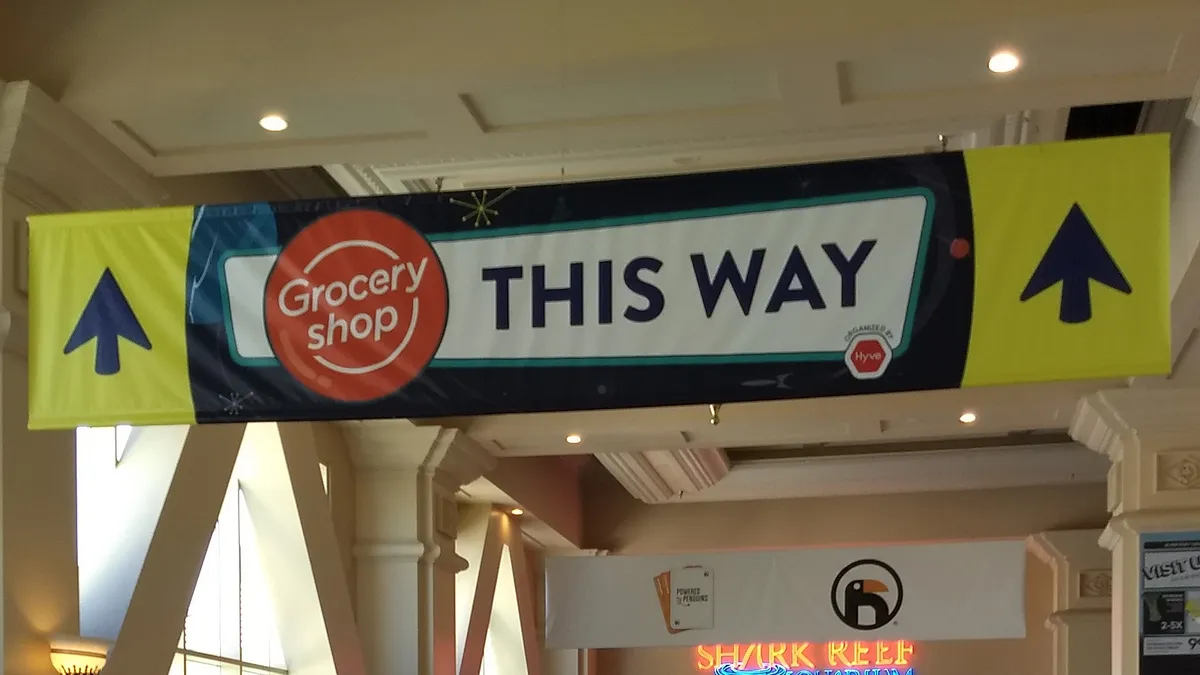Dive Brief:
- Dallas-Fort Worth has become a hive of grocery e-commerce activity recently, with numerous competitors launching services in the high-demand market, according to The Dallas Morning News.
- Amazon launched Prime Now delivery from stores in the Dallas area last week, while Target launched same-day delivery from its stores this week through its newly acquired Shipt service. Those two competitors are squaring off against Walmart and Kroger in the battle for online grocery dollars.
- H-E-B — which offers delivery through Shipt as well as store pickup at stores throughout Texas — just introduced store pickup to its Central Market location in Fort Worth, and will roll out the service to its Dallas stores throughout the year. Pickup at these locations is $4.95 along with a 3% personal shopping fee.
Dive Insight:
How will Amazon’s new Prime Now delivery from Whole Foods’ stores fare against Target’s same-day delivery? How will both of these players hold up against established click-and-collect operators Kroger and Walmart? And what about upstarts like Sprouts Farmers Market, which also offers delivery through Amazon Prime Now, along with Aldi, which recently partnered with Instacart?
These questions will take on national importance in the months and years to come, but for an advanced preview at how things might unfold, look no further than the Dallas-Fort Worth market.
Thanks to a booming population driven by suburban development, Dallas has become a hotbed of grocery activity. Last year, real estate research firm CBRE reported the city expects to add around 6.9 million square feet of retail space by the end of 2019. Kroger is spending $700 million in the market to build new stores and remodel existing ones. Walmart, meanwhile, currently sees several hundred online orders from each of its Dallas-Fort Worth stores, according to a recent report by The Dallas Morning-News.
Whole Foods, which operates more than a dozen area stores, should be an immediate disruptor. Delivery through Amazon’s Prime Now service is cheaper than what competitors Shipt and Instacart offer. The latter provides one-hour delivery for $7.99 and two-hour delivery for $5.99 on orders $35 and up ($11.99 and $9.99 for orders under that threshold), or free delivery on two-hour delivery orders over $35 with an annual Express membership costing $149. Amazon Prime Now, on the other hand, charges $7.99 for one-hour delivery and free-two hour delivery on orders over $35. Shoppers need to be Prime members, but with more than 90 million U.S. households already subscribed, according to estimates, that shouldn’t be a hard market to tap into.
According to Business Insider, Prime Now personal shoppers already outnumber Instacart shoppers at a Whole Foods store in nearby Austin, Texas. And customers are gushing about the new service.
Target has more stores than Whole Foods in Dallas and nationwide, and has lots of loyal customers. But the question is, will online delivery be cost-effective for the company? Its grocery business has lagged behind its other divisions, and it’s unclear how in-demand its housewares, clothing and other nonfood items will be for home delivery. Another concern is Target’s ability to operate Shipt as a standalone business. Will Meijer, H-E-B and other retailers continue to do business with the service now that it’s owned by a competitor?
The Dallas market could also answer key questions over the appeal of home delivery versus store pickup. Kroger and Walmart have built up a sizable customer base for their click-and-collect services. And Central Market’s new click-and-collect offering brings a very popular specialty grocer online. The thinking goes that store pickup is more popular in suburban areas while home delivery is preferred in more densely populated urban areas — but is that truly the case? How will store pickup hold up as home delivery becomes cheaper, faster and higher quality?
Cost and convenience have been two major barriers to delivery so far, and Amazon is working hard to break those down. Its success in these opening Prime Now markets, including Dallas-Fort Worth, will very likely herald its fortunes in key markets across the country.










